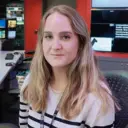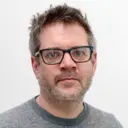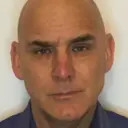Hopes for a US-brokered ceasefire in Ukraine appear uncertain after President Putin listed a number of tough conditions required for Moscow to consider a truce
Ukrainian President Volodymyr Zelensky said Putin's response was "manipulative" and called for more sanctions on Russia to force a deal
US President Trump, who has been pushing for a 30-day pause in fighting, called Putin's response welcome but "incomplete"
Meanwhile, the US is placing more restrictions on Russia's oil, gas and banking sectors, our US news partner CBS reports
Both Russia and Ukraine reported new enemy drone attacks late on Thursday and overnight
Russian officials said Putin was expected to hold talks with key Trump's special envoy Steve Witkoff on Thursday evening, but it's not clear if the meeting actually took place
This video can not be played
Watch: Putin responds to US ceasefire proposal
Edited by Francesca Gillett
An image shared by Ukraine's State Emergency Service of Ukraine – not verified by the BBC – shows a building on fire
Ukraine is reporting this morning on damage and injuries from Russian drone attacks overnight.
Kharkiv's governor Oleh Syniehubov says several people were injured, including children, in the region as a result of a drone falling overnight in an open area.
He also refers to a damaged power line and separately the roof of a local hospital building in Zolochiv burning down – a member of the emergency team was injured, he says.
The State Emergency Service of Ukraine adds that the hospital site was hit a second time but that emergency workers managed to get into a shelter.
It comes as total of 146 clashes between Ukrainian and Russian forces were recorded yesterday, the Ukrainian General Staff says on Facebook this morning.
The US has placed further sanctions on Russian oil, gas and banking sectors, our US partner CBS reported on Thursday,, external citing four people familiar with the plans.
A 60-day exemption had been in place since the Biden administration that allowed certain energy transactions involving sanctioned Russia banks to continue – but on Thursday the US let it lapse.
By letting the exemption lapse, it means banks may no longer access American payment systems to conduct major energy transactions.
Last night, Ukrainian president Volodymyr Zelensky called for further sanctions against Russia to help force a peace deal. Tom Bateman
Tom Bateman
US State Department correspondent, reporting from Quebec
Friday marks the final day of the meeting of G7 foreign ministers in Quebec
Foreign ministers of the G7 group of nations, including the US, UK and other European powers, are meeting for their final day of talks in Canada, following divisions over the wording of a joint statement on Russia and the war in Ukraine.
The Canadian host, foreign minister Melanie Joly, sat next to the US Secretary of State Marco Rubio and said the G7 must back Ukraine against what she called Russia’s aggression.
But the US rejects such public rebukes of Moscow, saying the language is antagonistic when President Donald Trump is trying to get the two sides to agree to an immediate ceasefire.
Previous joint statements by the G7 have contained pages of condemnation of Russia, but today’s is likely to contain little; highlighting the stark division between Europe and the Trump administration over where responsibility for the war should be attributed.
European nations back Trump’s call for a ceasefire, but still believe Moscow should be clearly called out for its full-scale invasion of Ukraine.
Seher Asaf
Live reporter
Fighting continues in the Zaporizhzhia region of Ukraine, pictured here on Thursday
Three days after Ukraine agreed to a 30-day ceasefire deal, Russian President Vladimir Putin responded to the US proposal – but it wasn't a yes or a no. In case you missed it, here's a recap of the key developments:
What did Putin say? He agreed with the idea, but laid out a tough conditions and said "questions" remained about the truce. He said the ceasefire should "remove the root causes of this crisis", adding that the country needs to negotiate with the US. "Maybe I'll have a call with Donald Trump," he said.
How did Ukraine respond? Ukrainian President Volodymyr Zelensky described Putin's response as "manipulative" and called for more sanctions on Russia. Putin "doesn't say no directly", he said in his nightly video address, but "in practice, he's preparing a rejection".
Were there talks? Russian officials said Putin was expected to meet US Special Envoy Steve Witkoff, who had flown to Moscow earlier that day – but it's not clear whether that meeting took place. On Friday, Russia's state-run media quoted the air traffic monitoring website Flightradar as saying the plane believed to be carrying Witkoff had left Moscow.
What happened on the ground? Both Russia and Ukraine reported new enemy drone attacks. Ukraine said seven people – including children – were injured in the north-eastern city of Kharkiv. Russia reported a large fire at an oil facility in the southern city of Tuapse.
As we've been reporting this morning, President Putin set out yesterday his reservations about a ceasefire with Ukraine.
Among those, he has said, is what would happen in Kursk – the Russian region where Ukraine launched a military incursion last August.
He claimed Russia was fully back in control of Kursk, and said Ukrainian troops there "have been isolated".
"They are trying to leave, but we are in control. Their equipment has been abandoned. There are two options for Ukrainians in Kursk – surrender or die."
You can watch some of his comments, which have been translated, in the clip below.
This video can not be played
Watch: Putin responds to US ceasefire proposal Cachella Smith
Cachella Smith
Live reporter
Welcome back to our coverage of the ongoing conflict in Ukraine.
You join us this morning as Ukrainian President Volodymyr Zelensky and Russia's President Vladimir Putin take different positions in relation to a potential ceasefire agreement.
Putin has now he agreed with the idea of a ceasefire in Ukraine, but added that "questions" remained. Zelensky described Putin's response to the plan as "manipulative" calling for further sanctions on Russia.
It came as US officials travelled to Moscow yesterday, although it's not clear if the planned talks happened.
Overnight the fighting continued – with both countries reporting new enemy drone attacks.
We'll be keeping on top of the main developments today with the help of our correspondents – but before that we'll catch you up with everything that happened yesterday.  Jamie Whitehead
Jamie Whitehead
Live page editor
Conversations had by the world's leaders and foreign ministers today have been dominated by one subject: peace in Ukraine.
Earlier this week, Ukrainian President Volodymyr Zelensky said he was ready to immediately accept a 30-day ceasefire. But, after talks between Washington and Kyiv in Saudi Arabia, it was up to the US to convince Russia to agree to it.
But will they? Russian President Vladimir Putin vocalised his thoughts on the potential deal for the first time in Moscow today, and although he did say that he would accept the deal, there were a lot of caveats.
Zelensky, unsurprisingly, was not happy with Putin's comments. He described them as "manipulative", and called for more sanctions on Moscow.
On the other side of the Atlantic, peace talks were revving up. Foreign ministers of the G7 countries are meeting in Quebec – we'll know more about how that's gone tomorrow when they release their statement – and President Trump hosted Nato secretary-general Mark Rutte in the White House.
The US president described Putin's statement in Moscow as "incomplete", but did say he hoped that Russia would "do the right thing" and agree to the proposed 30-day ceasefire.
For now, we are bringing our live coverage to an end. We'll be back in the morning but you can read more on what's happened today in our news story, our defence correspondent Jonathan Beale has been finding out what Ukrainian troops on the front line think of the peace talks and our colleagues Laura Gozzi and Paul Kirby have been asking: is Putin ready for a ceasefire or playing for time?
Thank you for joining us.
The US-backed ceasefire proposal remained top of the agenda today as we heard from the leaders of the US, Russia and Ukraine as well as G7 foreign ministers in Canada.
Here's a quick recap:
Putin responds to ceasefire plan: At a news conference in Moscow, the Russian president said he supported ending the conflict, but insisted a ceasefire should "remove underlying causes of this crisis" and secure an "enduring peace".
Zelensky sceptical: The Ukrainian leader criticised Putin's response to the US-backed ceasefire plan as "manipulative" and called for more sanctions on the country to force a peace deal. Putin "often does this, he doesn't say no directly, but does something that only delays things or makes normal decisions impossible", Zelensky said in his nightly address to the nation.
Diplomacy continues: Trump envoy Steve Witkoff is in Moscow to discuss the plan with a Russian delegation. And President Trump, while hosting Nato secretary-general Mark Rutte at the White House, said he would "love" to meet with Putin in a bid to end the fighting.
The US is toughening sanctions on Russian oil, gas and banking sectors by further restricting access to US payment systems, the BBC's US partner, CBS News, is reporting, citing four people familiar with the plans.
A 60-day exemption put in place under the Biden administration that allowed the continuation of certain energy transactions involving sanctioned Russia banks has been allowed to lapse, CBS reports.
Banks may no longer access American payment systems to conduct major energy transactions as a result of the waiver expiring.
From Moscow to Washington, via Kyiv and Quebec, one subject has dominated the conversations of the world's leaders and foreign ministers today. Can a lasting and durable peace in Ukraine be achieved?
Here's what Thursday has looked like in pictures:
Russian President Vladimir Putin broke his silence on the ceasefire in a televised press conference in Moscow. He said he supported the idea of a ceasefire, “but there are issues that we need to discuss."
In Ukraine, President Zelensky responded to Putin's claims by saying the Russian leader was being "manipulative," and called for more sanctions on Moscow.
US President Donald Trump met with Nato secretary-general Mark Rutte in the White House. Trump said Putin's earlier statement in Moscow was "incomplete,” but did say he would “love” to meet the Russian leader.
In Canada, G7 foreign minsters are meeting to discuss a path to peace in Ukraine. Italy's foreign minister said it was "important to stay around the table for talks about a peace with justice."
But the war continues on the ground. Five civilians were killed and 13 wounded in Russian attacks on the Donetsk region today. Tom Bateman
Tom Bateman
US State Department correspondent, reporting from Quebec
I just spoke to Italian foreign minister Antonio Tajani here at the G7 meeting in Quebec, and I asked what he made of Putin’s response to the Trump ceasefire proposal.
“We need to know exactly what he wants,” said Tajani of Putin’s remarks. “It’s important to stay around the table for talks about a peace with justice – long term peace,” he said.
The Europeans are backing the US/Ukraine proposal for an immediate 30-day ceasefire, of which Putin said today “the devil is in the detail” and listed a series of questions for Trump – effectively passing the ball back to him.
I asked Tajani about a key source of tension between the Americans and Europeans – whether there would be condemnation of Russia in the joint statement expected tomorrow from the US Secretary of State Marco Rubio and the six other foreign ministers here.
Europe wants its usual harsh words against Moscow, but Rubio has warned against “antagonistic” language on Russia.
“I think the bombing against the civil population is unacceptable,” said Tajani, declining to comment further on whether this sentiment would be in the joint statement with the US.
The man who was once America’s top diplomat responsible for Europe says some of President Putin’s language today “suggests he has no intention of agreeing to anything like a ceasefire”.
Daniel Fried, who served as US assistant secretary of state for European and Eurasian affairs from 2005-09, tells BBC's Newshour Putin's aim in the war is "to restore the Russian empire in Europe".
"If he holds to that, there’ll be no ceasefire," he says.
"Now, it may be that if Trump pushes back on Putin hard, then Putin will find a way to retreat to a 'yes, but' but I would not be overly sanguine.
"Putin has shown no sign so far of abandoning his objective, which is the destruction of effective Ukrainian sovereignty," he says.
If you're just joining us, here's a brief look at the latest developments:
At a news conference earlier, Putin agreed with the proposal for a ceasefire but said it should lead to an 'enduring peace' Vitaliy Shevchenko
Vitaliy Shevchenko
Russia editor, BBC Monitoring
We can bring you more from Zelensky, who is reacting to an earlier news conference from the Russian president.
He says Putin "often does this, he doesn't say no directly, but does something that only delays things or makes normal decisions impossible".
"This is yet another manipulation by Russia," he adds. "It's only Russia that will delay things and be unconstructive."
The Ukrainian president then calls for more sanctions in order to "put pressure" on Putin. Vitaliy Shevchenko
Vitaliy Shevchenko
Russia editor, BBC Monitoring
Ukrainian President Volodymyr Zelensky says Vladimir Putin's response to the ceasefire proposal is "manipulative” and he rejects his "preconditions".
"What we've heard from Russia are Putin's very predictable and very manipulative words," Zelensky said in his evening video address tonight. "In practice, he's preparing a rejection."
"Of course, Putin is afraid to tell Trump directly that he wants to continue this war, that he wants to continue killing Ukrainians.
"That's why Moscow surrounds the ceasefire idea with preconditions that won't make anything possible, or make it impossible for longer." Tom Bateman
Tom Bateman
US State Department correspondent, reporting from Quebec
Vladimir Putin appears to have identified the weaknesses in the American ceasefire proposal and is characteristically exploiting them to throw “the ball” back to Trump, to use the preferred metaphor of the Americans on this.
What the Russian leader is saying is that you can’t have an “immediate” ceasefire without first agreeing on terms; upending Trump’s demand for a truce first and talks second.
And, of course, he is saying he accepts the principle of an end to the war to try to avoid the accusation of being the spoiler. But he means a ceasefire on his terms, so he is throwing a whole series of questions back to Trump about the nature of the proposed truce, particularly around any Ukrainian troop withdrawals.
Earlier here at the G7 meeting of foreign ministers in snowy Quebec, Secretary of State Marco Rubio swerved a shouted question about the Kremlin’s response, preferring to stay silent until Trump’s envoy relays back to Washington what Putin tells him privately.
That conversation – between Witkoff and Trump – now becomes key to determine how the US president will respond, with the ball back in his court. Jonathan Beale
Jonathan Beale
Defence correspondent
While Moscow considers a temporary ceasefire, its military machine continues to press its advantage on the front line. Diplomatic negotiations can be slow and difficult. But on the battlefield, they can be measured in lost lives.
At a military hospital in eastern Ukraine, the injured arrive by ambulance in waves. Here, there's an obvious disconnect between diplomacy taking place, far from the fighting, and the brutality of battle – where human bodies are still being smashed, shredded and scarred by bombs and bullets.
We watch another two dozen injured Ukrainian soldiers being loaded on to a bus to be taken to a hospital in Dnipro – some walking wounded, others carried on stretchers. The bus is fitted out with medical equipment to monitor the injured as they're driven fast over potholed roads.
The men on board are the less severely wounded. Most have been hit by shrapnel. The cause is often what's now the most prolific and feared weapon on the front line – drones.
None of those we talked to believe this war will be ending any time soon.
To hear more from Ukrainians at the front line, read Jonathan Beale's full article.
As we’ve been reporting, US President Donald Trump has been meeting with Nato secretary-general Mark Rutte at the White House.
In front of the ornate gold fireplace, which bore witness to an explosive meeting between Ukrainian President Volodymyr Zelensky and Trump a few weeks ago, this time it was far more cordial. Here's a look back at what was said: Vitaliy Shevchenko
Vitaliy Shevchenko
Russia editor, BBC Monitoring
President Zelensky’s Chief of Staff Andriy Yermak says both Ukraine and the US are determined not to turn the war into a frozen conflict.
“Our position here fully coincides with that of our American partners,” he told Ukrainian TV earlier.
Yermak – who was involved in the recent talks with the Americans in Jeddah – described them as a “very successful meeting”.
But he added: “It’s only a beginning. We’ve got a lot of work to do.”
He said European representatives “will definitely take part in the peace process” in Ukraine.
“The most important thing is that Ukraine is not alone, it’s together with partners,” Yermak said.
This video can not be played
Watch: Trump calls Putin response to ceasefire proposal 'promising'
Trump answers questions from reporters and says Putin "put out a very promising statement” in his press conference earlier “but it was incomplete.”
Before this, Trump says a "lot of the details" in the final agreement have been discussed and he is waiting for a response from Moscow.
To watch and listen, you need to enable JavaScript in your browser.
Trump: Putin’s Remarks Promising, But 'Incomplete' BBC News. Video
Copyright © 2025 BBC. The BBC is not responsible for the content of external sites. Read about our approach to external linking.